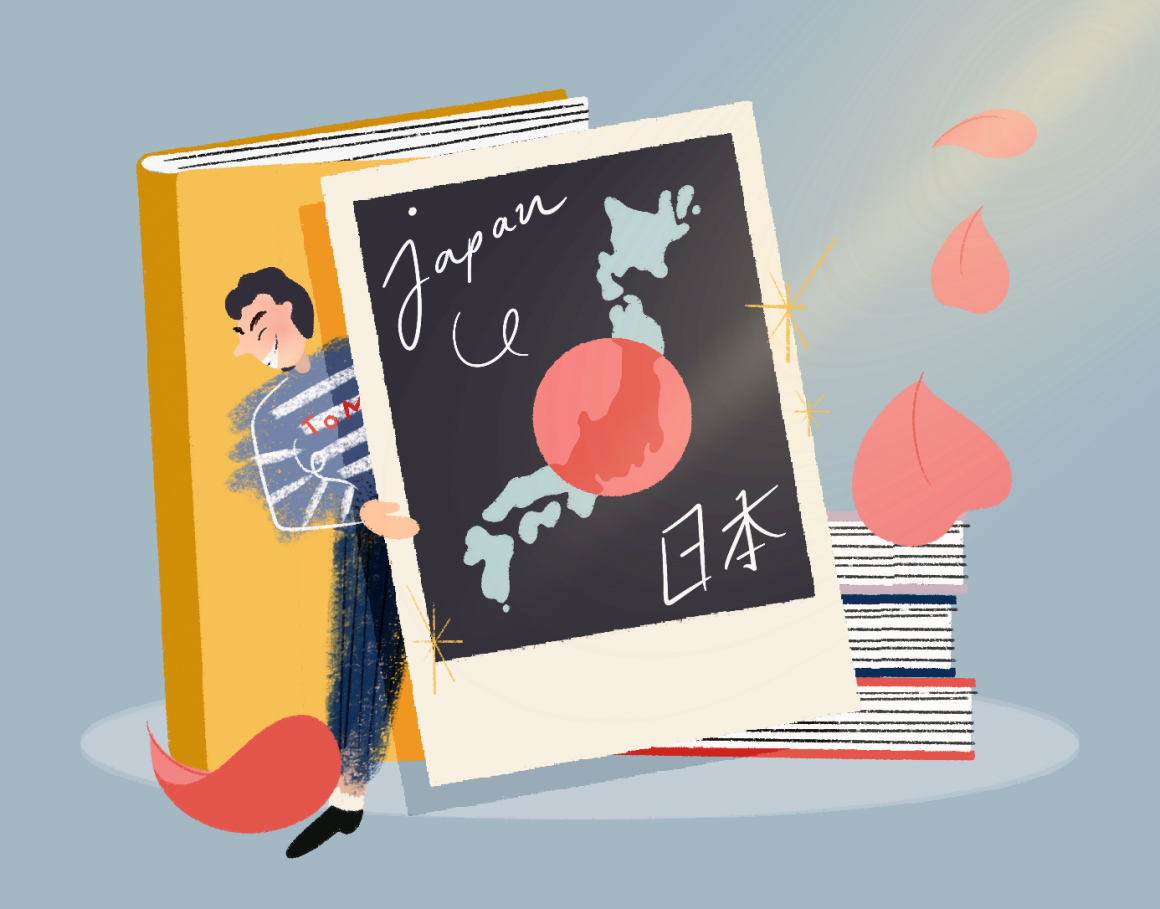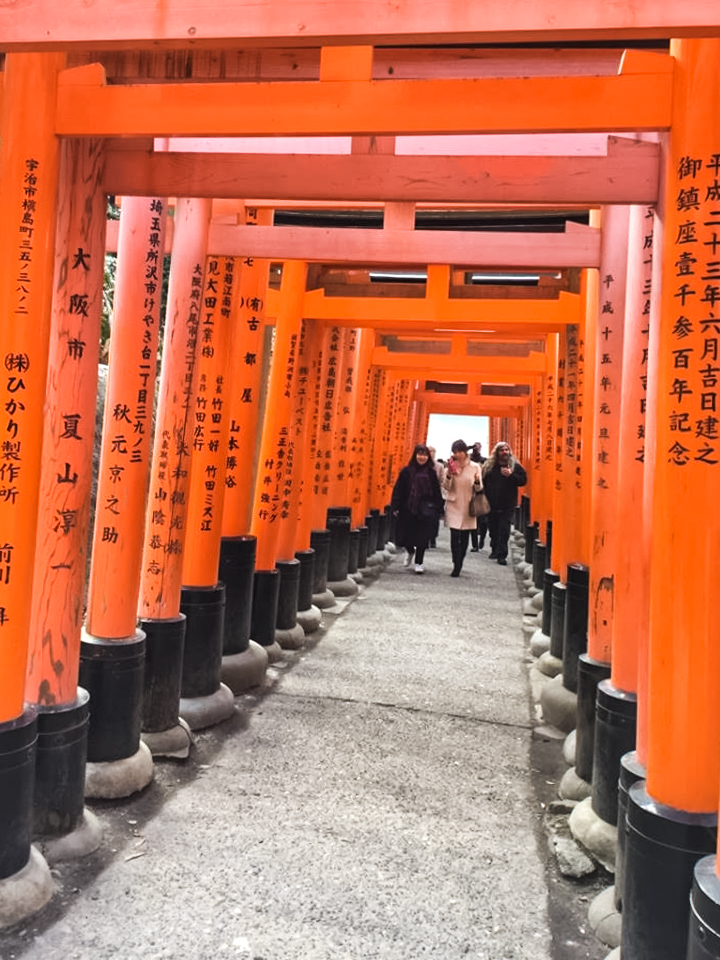
You owe it to yourself to study abroad
By Tommy Osborne, March 14 2019 —
Over the past six months, I’ve studied abroad in Tokyo. Participating in the University of Calgary’s study abroad program has been one of the best decisions of my life, even though it was intimidating to move away from home for so long. Now, halfway through my study abroad experience, I’ve had the chance to reflect back on why I believe that every student should study abroad if given the opportunity.
First, a quick financial disclaimer. Through saving money from part-time jobs, full-time summer jobs, scholarships and some hefty student loans, I paid for my trip by myself. Concerns about finances can be one of the primary reasons why students don’t study abroad. And it makes sense — it can be quite expensive. However, even though the finances can be tricky to navigate, it’s still possible for many students to study abroad.

Speaking of finances, studying abroad is one of the best chances you’ll get to travel for cheap. While it may not seem like it at a quick glance, studying abroad is a far more manageable way to travel than if you were to travel alone after university. Living in a student dormitory is considerably cheaper than finding accommodations elsewhere, like an Airbnb or a hotel. Also, most student dormitories have some sort of meal plan set up and these are considerably cheaper than eating out. In my dorm in Tokyo, you can buy a full dinner for just 400 Yen — under $5 CAD.
Student loans are also interest free until six months after you graduate, which really helps when trying to fund your trip. While you obviously have to pay the loan back at some point, it’s better than getting a regular loan with interest immediately tacked on to it. From a financial standpoint, studying abroad is one of the best chances you’ll have in your life to go visit a different country for an extended period of time — whether it’s for a month or an entire year.
You might be thinking that you could just get a full-time job after graduating and save up money to travel without taking out loans. But it’s best to travel while you’re still young and don’t have too many responsibilities. Studying abroad gives students a chance to experience a different country while still being productive. I get to live in Tokyo for a year while still getting university credits, so I won’t even have to take an extra year when I get back to the U of C.
You wouldn’t be able to do this with a full-time job — you could probably get some time off to travel, but a full year? Good luck. By the time you have a full-time job, you’ll probably have other important obligations as well, like a mortgage or family. Study abroad while you’re young and relatively unburdened with responsibilities you’ll have post-graduation.
One of the main appeals of studying abroad is the thrill of experiencing a different culture first-hand. While you can catch a glimpse of how different life can be in other areas of the world through vacations, living there offers a chance to immerse yourself into a different way of living. As a tourist, there is pressure to see all the ‘cool things’ right away. You spend so much time focused on going to as many popular destinations as possible that it’s tough to fully enjoy what a country has to offer. But when you’re living abroad, famous spots become a normal part of everyday life.

For example, every day when I go to school I get a beautiful view of the Tokyo Tower. It’s just a regular thing — much like seeing the Rocky Mountains in the distance from Calgary. The same can be said with going to places like Shibuya Crossing, which is just a half-hour train ride away. Now I’ve been there so many times that it’s simply another thing to do, like grabbing a drink on Stephen Avenue after class. A world-famous spot is just a place you can visit pretty much whenever you want. Living somewhere allows you to take your time and really immerse yourself, which rarely happens when you’re a tourist staying somewhere for a short time.
The small details also add a lot to the study abroad experience — small things you most likely wouldn’t notice on a short vacation. For example, pizza is ridiculously expensive in Japan — a medium Domino’s pizza costs at least $18 and grocery stores don’t sell traditional cold cuts and cheeses. While that’s a relatively minor example, it helps you appreciate some of the things that we take for granted in Canada.
Finally, studying abroad provides a chance for a lot of personal growth. Leaving your comfort zone and living on your own is a big jump from living at home. Some students already relate to this, as not everyone at the U of C is from Calgary, and many know what it’s like to have to pay your own bills, organize your own meals and keep yourself motivated to do schoolwork while having to hold yourself accountable. While I’m competent at Japanese, I am nowhere near fluent, which took me even further out of my comfort zone.

Going abroad can be challenging. There will be days where you’ll miss your friends, family and the general comfort of being somewhere you know you belong. You’ll find yourself missing things you never even thought about. But these challenges aren’t a bad thing. You learn a lot about yourself and how to be independent. One of my favourite experiences was when I was able to organize a cellphone plan in Japanese all by myself. While the big experiences like travelling to cities like Osaka and Kyoto are undeniably the highlights of my study abroad experience so far, I’ve grown to appreciate the day-to-day challenges and how they have helped me grow as a person.
Studying abroad is an amazing experience. If you ever find yourself wanting to see what the rest of the world has to offer, there’s no better time than the present to dive right in and see for yourself — you won’t regret it.
